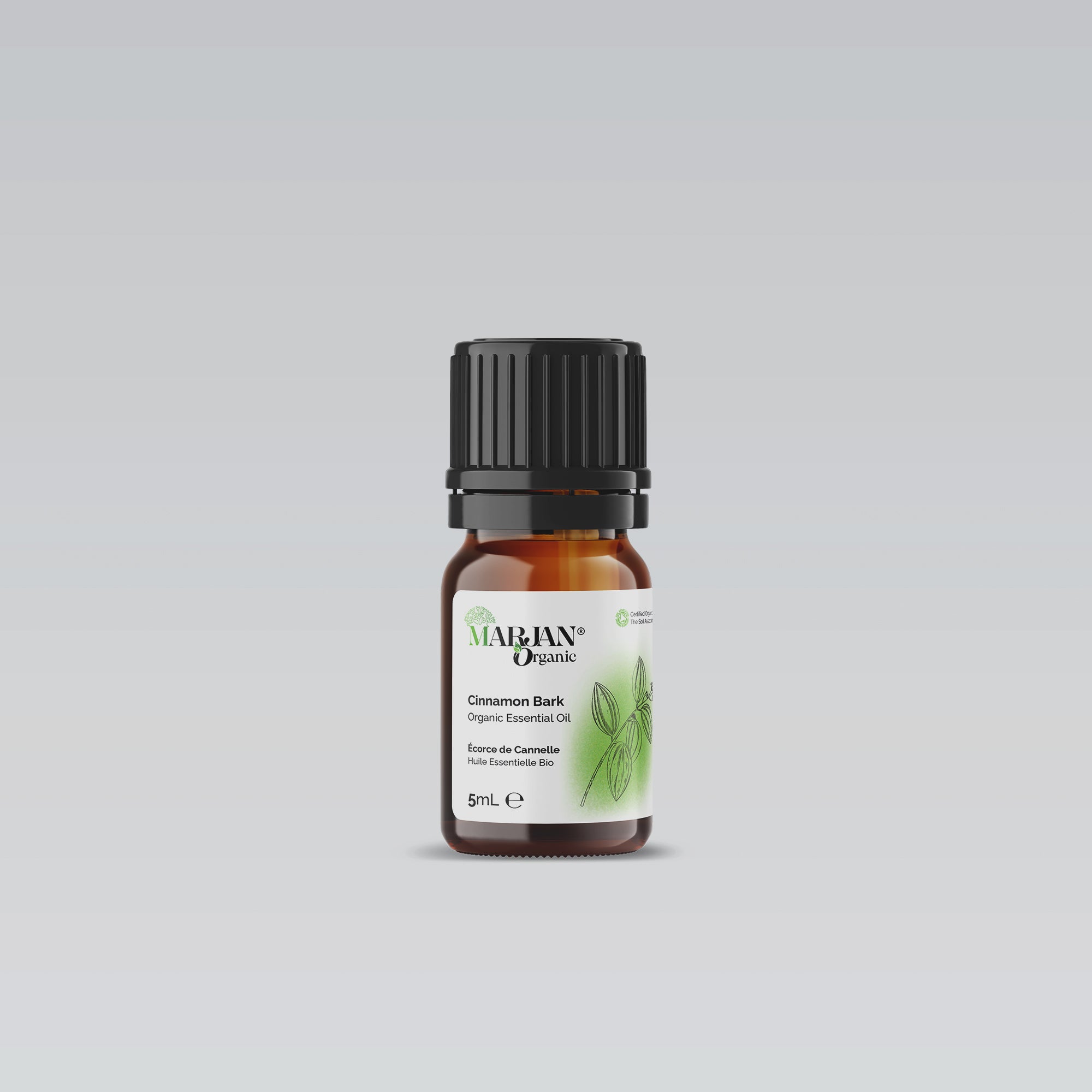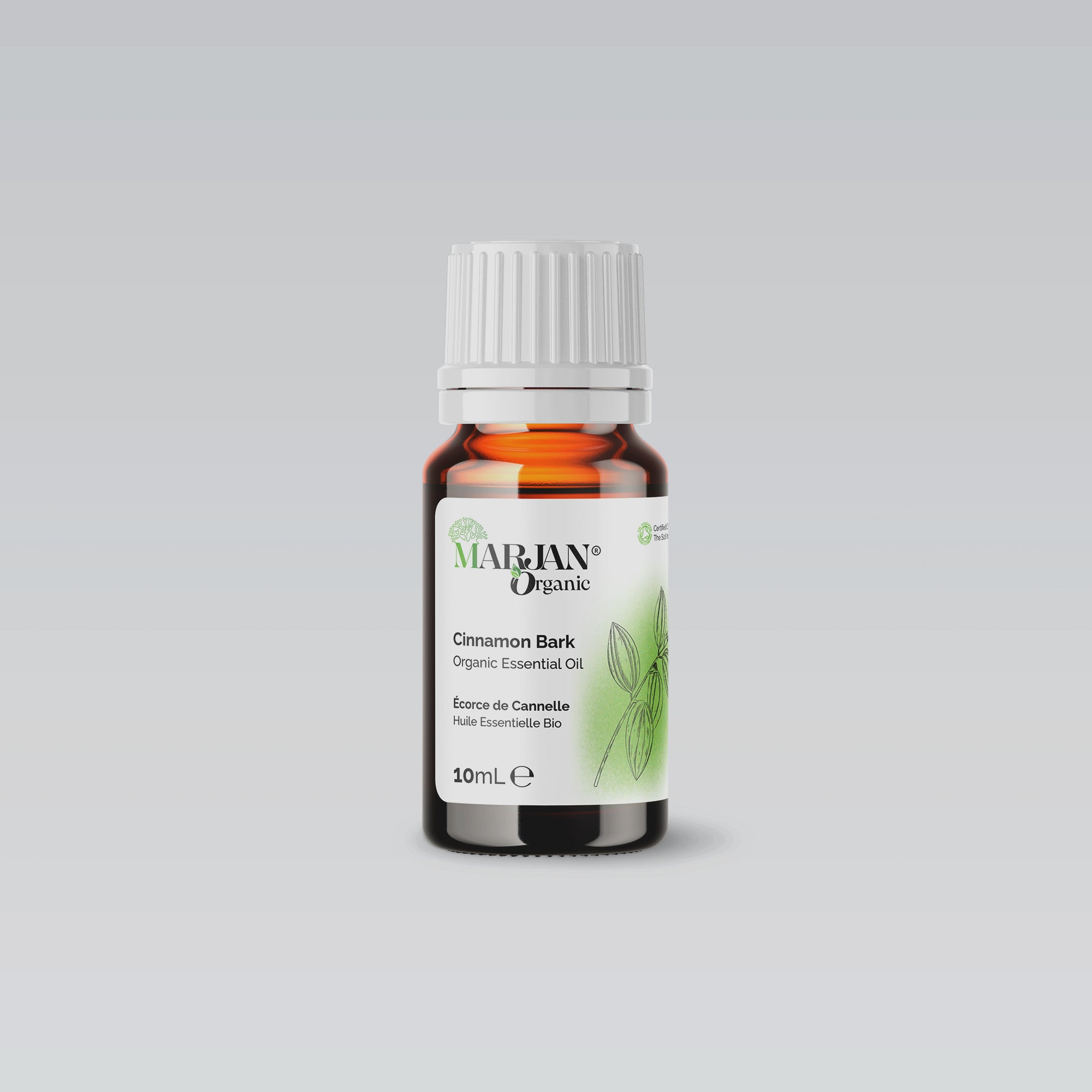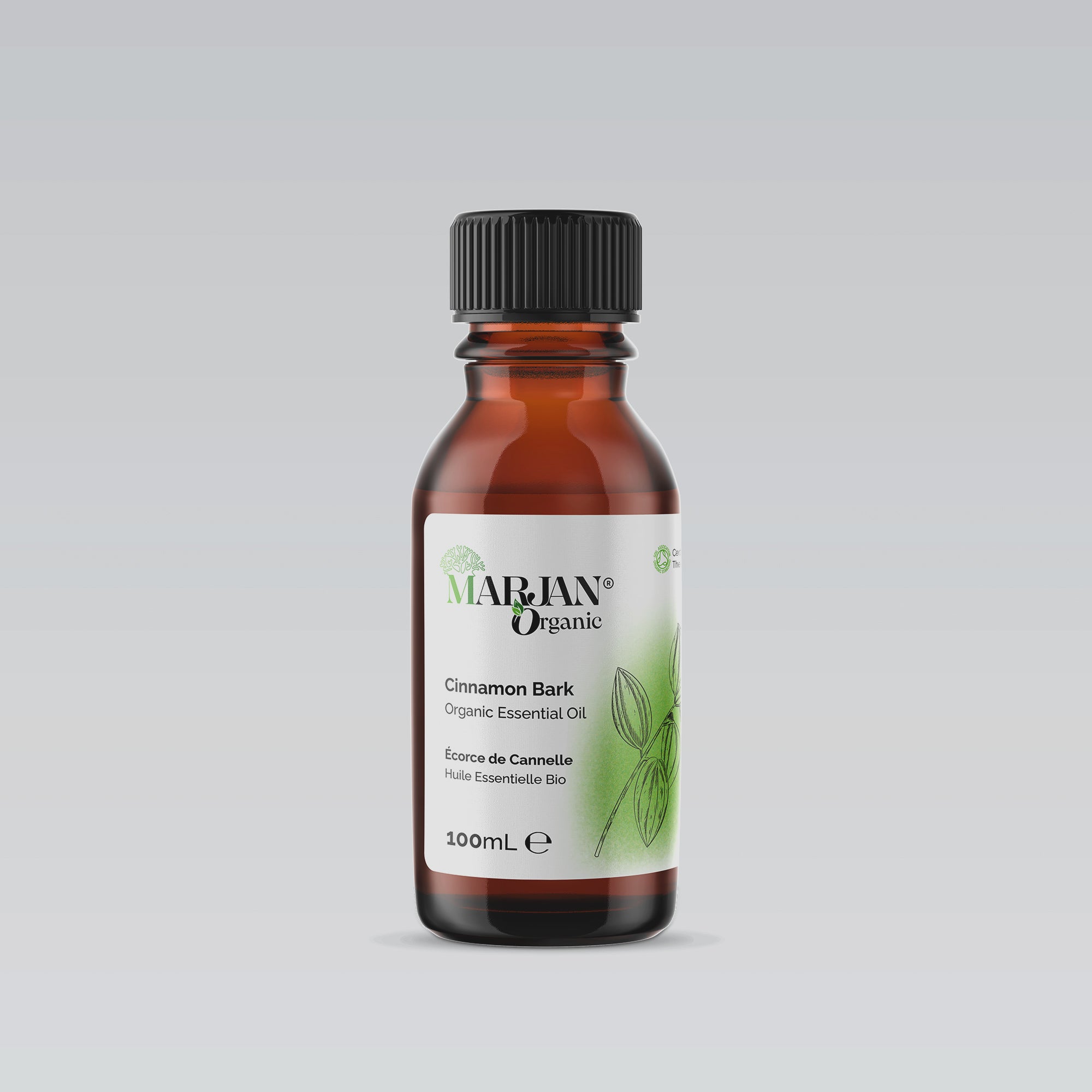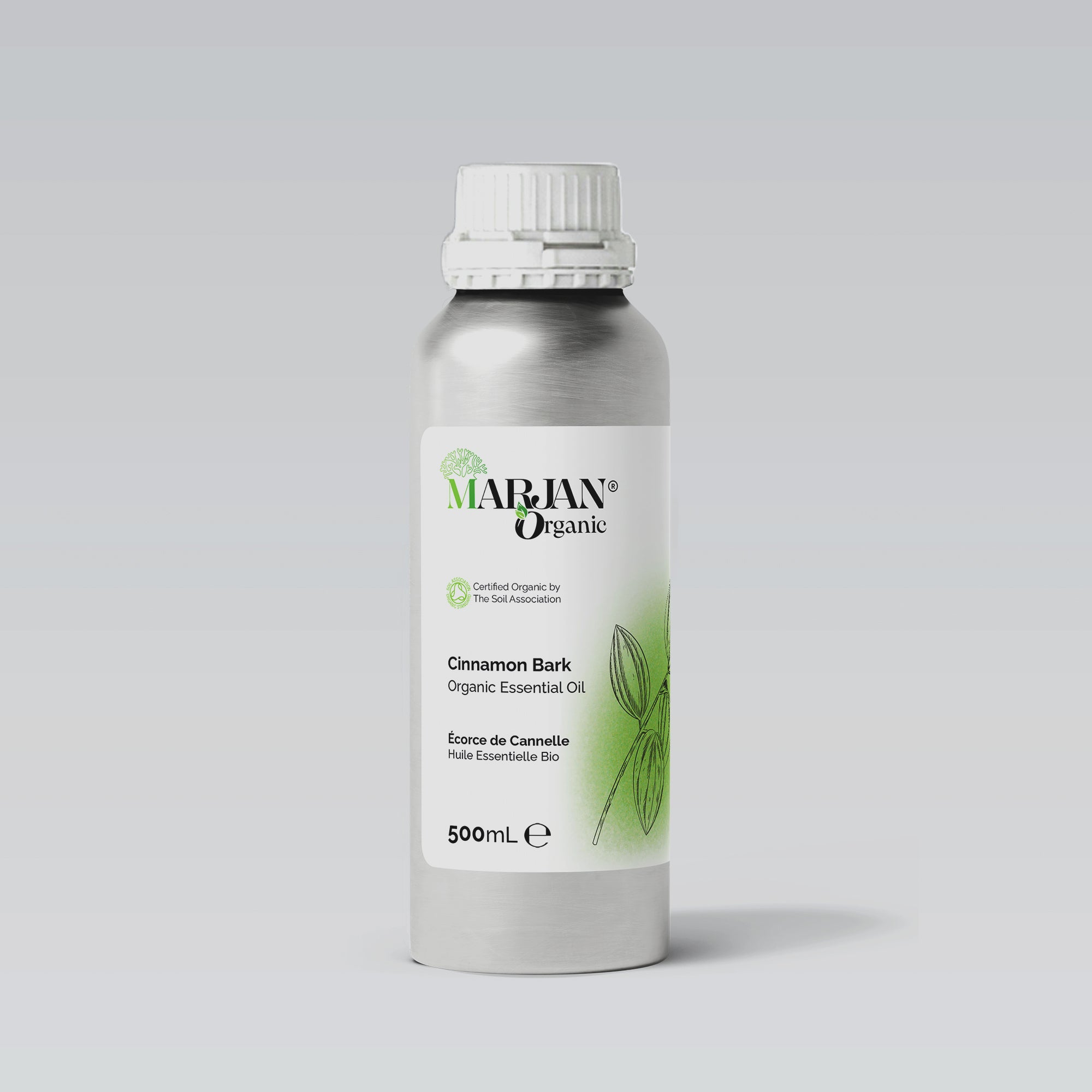Cinnamon Bark Organic Essential Oil (Certified by The Soil Association)
- Regulärer Preis
-
£9.16 GBP - Regulärer Preis
-
£10.19 GBP - Verkaufspreis
-
£9.16 GBP
Description
CERTIFICATIONS ORGANIC
Product from organic farming Certified by The Soil Association
The “true” cinnamon tree is an evergreen tree that can grow up to fifteen metres tall.
Originally from present-day Sri Lanka, it belongs to the Lauraceae family. Its leaves are long and shiny; its small round flowers give berries of a dark blue.
Cinnamon is known to reduce feelings of depression, fainting and exhaustion. It is known to relax the body enough to stimulate libido, making it an effective natural aphrodisiac.
It is essentially antiseptic, antiviral and antibacterial, with a
very broad spectrum of action on microbes, even resistant to antibiotics.
It is used against respiratory infections (sinusitis, bronchitis, cold, flu), urinary (cystitis), or intestinal (gastroenteritis, turista).
It is also a remarkable antispasmodic and antiparasitic.
- Botanical Name: Cinnamomum Zeylanicum
- Origin: Sri Lanka
- Method of obtaining: Steam distillation of barks
- Olfactory family: Spicy
- Appearance : liquid
- Color : pale yellow to dark yellow
- Odor : spicy, mild
- Blends With: Citrus - floral - spicy and woodsy oils.
- Uses: Cosmetic - Diffusion - Perfumery
INGREDIENTS
HOW TO USE
SHIPPING INFORMATION
UK & UAE - INTERNATIONAL ODERS
As a company, we have worked hard to put in place the most efficient and cost-effective postal options for our customers and the shipping price is determined by the weight of the shipment.
HANDLING TIMES
From Monday to Friday, we aim to despatch all orders ordered before 12pm the same day but this can be delayed during busy periods. For urgent orders please select the 24 Hour option and we will guarantee to despatch your order within 24 hours on receipt of order. Orders despatched with the 24 Hour option on Friday will be delivered on Monday. If for any reason we cannot fulfil an order we will also aim to contact you to inform you of the reason for the delay within 24 hours.
DHL and Aramex collects packages from Monday to Friday and for orders placed on Friday will be processed the following Monday and those placed after 12pm (midday) on Friday will be shipped on Monday (excluding bank holidays).
When we despatch your order you will be sent an email confirmation including tracking details where applicable.
POSTAGE WORLDWIDE IS CALCULATED BY WEIGHT
We have the following options available to International Customers.
TRACKED PARCEL
UK / EU / UAE 3-7 Days
WORLDWIDE 4-10 Days
Abholverfügbarkeit konnte nicht geladen werden








FAQs
Recommended for
Benefits
Details
Sort and Environment
















